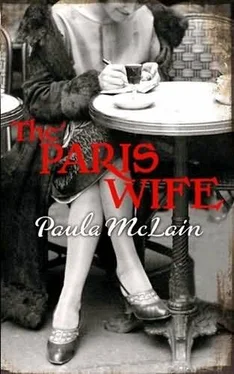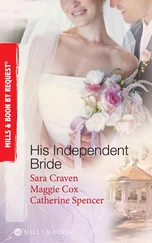“Please stop,” he said. “We’ve just had a wonderful time in Cologne, haven’t we? Why can’t we just be happy?”
“That’s all I want,” I said, but the tears still came. I opened my suitcase, then closed it again and went into the kitchen to boil water for tea. I thought maybe he’d gone into the bedroom, but he was there, just behind me, pacing.
“It’s too far away,” I finally said.
“That’s the point, isn’t it? You don’t want a war breathing down your neck.”
“Can’t we just pretend the telegram never came?”
“No, we can’t.” His face grew suddenly hard then, because I was asking him to choose me over his work. “To hell with the tea,” he said, but I kept at it, measuring leaves for the pot and pouring water through the porcelain sieve. He strode back and forth behind me in the tiny kitchen, waiting for me to apologize. When I didn’t and didn’t even turn around, he finally stormed out of the apartment.
I knew he’d gone to a café. I could have found him easily and it might have been fine, then, if I had. We could have had a brandy and water and agreed to put it behind us. Or asked the waiter to bring the absinthe and let it erase everything beautifully. But I stayed where I was and drank the damn tea, though I didn’t even want it.
By the time Ernest came home, I was drunk and pretending to sleep. I’d abandoned the tea and taken up a bottle of whiskey instead. I’d eaten nothing, and just drank the whiskey, several glasses, warm without water. When I was drunk enough to do it, I took up the lovely china teapot which had come so far with us and let it drop to the floor with a crash. I meant to leave the pieces there for him to see, but once I’d done it, it was too small and childish-the act of a tantrum, like he’d said. I hated feeling so desperate and out of control, but couldn’t seem to rein it in either. I picked up the mess, one wet ruined shard at a time, and put it in a small paper sack. Then I went to bed. My head swam viciously on the pillow, but I closed my eyes and tried to slow my breathing. Much later, I heard him on the stairs, then in the room.
“Hadley,” he said, sitting next to me on the bed. He touched my face and neck lightly, but I didn’t move. “Let’s don’t do this, Feather Cat.”
I pinched my eyes tight to keep the tears from coming, and tried to appear as if I were sleeping. But he knew I wasn’t.
“Damn you,” he said, when I wouldn’t open my eyes or answer him. He gave my shoulder a rough shove. “It’s the job. You know I have to go.”
“You don’t have to. You want to go.”
“To hell with you anyway,” he said, and left to sleep elsewhere.
Maybe he went back to his room on the rue Descartes that night or slept on the long bench downstairs in the dance hall. I don’t know. He stayed out until after noon the next day, and then came in to pack and make arrangements. He moved around the apartment, throwing things into a bag, getting his notebooks together.
“Is this how it’s going to be then?”
I stared out the window at nothing.
“You said you’d never do this, you know.”
He was right. Over and over I’d sworn I’d never stand in the way of his work, particularly when we were just beginning, when I saw his career as my own and believed it was my role or even my fate to help him carve a way. But more and more I understood that I didn’t know what those promises really meant. Part of me wanted him to be as unhappy as I was. Maybe then he’d give in and stay.
But he didn’t. We didn’t speak or touch for three days, and when he left, on September 25, he was so hurt and angry I could barely stand to look at him. I stood at the door and watched him struggle with his bags on the stairs. Toward the bottom, he dropped the valise holding his Corona. It fell hard, bounced with a sickening clatter, and then fell again. He kicked it angrily before he picked it up. When he got to the door at the bottom of the stairs, he kicked that, too, and then I heard nothing.
I t might be malaria breaking through the quinine, but everything is strangely yellow. The long road is a tamped and stark ocher color and the mountains in the distance are darker. There’s a river, the Maritza, and it’s running high and fast because it’s been raining for five days and the rain, too, is yellow .
He hasn’t slept well since he left Paris, and this makes the rain harder to walk through. There isn’t an end to any of it, the rain or the walking. Columns of refugees surge and spill onto the Karagatch Road. They’ve loaded their carts with everything they can’t bear to leave behind, the ones who have carts, and the rest are strapped to bundles and carry other bundles or carry children. The children carry what they can and cry when they get too tired or scared. Everyone’s scared and wet and the rain keeps coming .
He is here to bear witness, he understands that, and so makes himself see everything and not look away from any of it, though much he sees gives him a sick feeling in his stomach. It’s his first taste of war since he was inside the war, and that alone started a terrible shaking in him the first two days. The shaking is gone now. He’s forced it back and now can do what he came to do .
Along the Karagatch Road, he talks with many who’ve come from Smyrna and seen the fires there and worse. A man with a bright red face watched his sister run down to the quay screaming and alight to the tips of her hair. Another man is bandaged from his hand to his shoulder, the cloth filthy and sodden, and even in the rain you can smell the gangrene, a sweet smell like roasting almonds. The man speaks through an interpreter and says he hid under the pier at Smyrna for most of a day and a night, the water up to his chest sometimes. It was the mussels on the footings of the pier that cut his hand and arm when the tide came in and pushed him against the hard shells .
“ There were searchlights in the harbor,” the man says. “And you didn’t want to see the things floating there, all around you. ”
In the end he came out of the water and found his family and took to the road, like so many others. He was cut deep in several places but he wasn’t bleeding. He had thought the salt would cure his wounds and that he’d be fine without a surgeon .
“ You can see I’m not fine,” the man says through the interpreter, and keeps walking .
“ Yes, anyone can see that,” Ernest says .
They walk next to a cart pulled by a single great ox streaming with rain, and in the cart the man’s wife is in labor. The bedding in the cart is wet through, and there’s another blanket, tented and dripping, that two of her children hold over her as she bears down. An old woman crouches between her knees while the children try to look away, and it makes Ernest sick to see this and to hear her screaming, which won’t be helped until the child is born, and maybe not even then .
The man is still walking and looking ahead through the rain and says, “My wife knows I’m a coward. I hid under the pier. I meant to leave them all. ”
Ernest nods and looks up to see they’re coming to a bridge over the river, a wooden structure that looks slick but sound for all the weight on it, carts and oxen and camels, the bodies packed in and no one moving forward or back .
In the distance, over the heads of the living, he sees the fine white spires of a mosque, minarets rising out of the yellow muck, detached from the very real things happening on the road, the mud and the screaming and the cowardice and the rain. In the pocket of his jacket there’s a blue notebook folded in half and two pencils. The paper’s drenched through, he knows it without having to check, but he couldn’t write any of this anyway. He’ll send a dispatch from the hotel tonight, if it hasn’t floated off in the rain. For now, all he can do is make himself see everything and not shake and not look away .
Читать дальше












